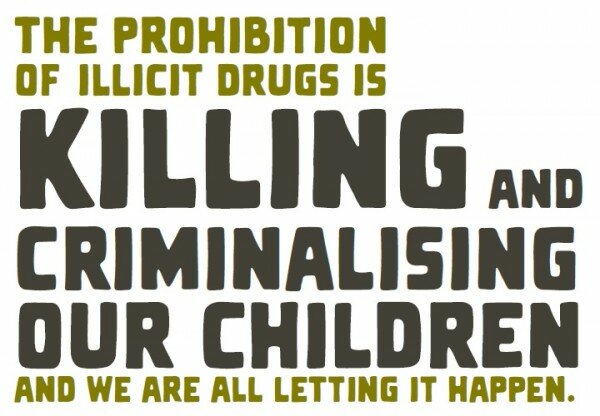
Australia21 is a non-profit body that was established in 2001 to develop new frameworks of understanding for complex multi–disciplinary problems that are important to Australia’s future.
In September 2011 Australia21 appointed a steering group that included a number of Australian experts on illicit drug policy. Their task was to work towards an Australian review of the policy of prohibition and explore a different approach to illicit drugs in Australia.
The group recommended a high level exploratory roundtable on the topic;
What are the likely costs and benefits of a change in Australia’s current policy on illicit drugs?
IN A NUTSHELL
• Prohibition puts the production, distribution, and control of illicit drugs into the hands of criminals and exposes young people, police and politicians to their corruptive influence.
• The harms resulting from prohibition substantially outweigh the gains from efforts by police to suppress the criminal drug industry – a fact now accepted by many politicians, police, researchers and leaders of civil society across the world.
• The harms include a large planeload of avoidable Australian deaths annually; home and property crime; our prisons and justice system clogged by victims of the industry; a flourishing drug culture that is fostered and controlled by criminal interests and a complete lack of control of the dosage and toxicity of the drugs that young people are consuming.
• International drug prohibition has, until now, been maintained through international treaties and conventions, spear-headed by a US “War on drugs”. The recognition that this war has been comprehensively lost is leading to an international rethink about prohibition and about these treaties and conventions.
• The enormous profits from the black market trade in drugs mean that an ounce of heroin costs many times more than an ounce of gold. The criminals are much better resourced than law enforcement authorities and any success that police have in reducing the supply, results in an increase in the price of drugs and an increase in criminal profits and activities.
• Despite decades of a prohibition approach in Australia, illicit drugs are easily purchasable on our streets and in our prisons. The perverse nature of the system ensures that a steady stream of young people becomes dependent on a continuing supply of drugs.
• Large amounts of public funds are allocated to a failed law and order approach to drug use. These resources would be better directed to managing drug use as a health and social issue as we do with nicotine and alcohol.
• Drug taking undoubtedly produces serious harms to individual drug users and their families. Many of the harms to them, to others and to society at large are a result of the national policy of prohibition and criminalisation which, arguably, increases, rather than decreases, the risks of more people becoming drug dependent.
• This is a very complex issue that demands proper community discussion of a range of alternatives to prohibition, that are now being considered everywhere including in the United States where the failed war on drugs and prohibition began.
• National drug policy should be based on evidence of what works and what does not and the international evidence base on these issues is now both substantial and persuasive.
• It is time to stop sloganeering and insist to all of our political representatives and to our media that Australia must have an informed national debate about the alternatives to a policy that has failed disastrously and is criminalising our young.

The prohibition of illicit drugs is killing and criminalising our children and we are all letting it happen.
Australia21 Illicit Drug Policy Report
Full Report
/publications/press_releases/Australia21_Illicit_Drug_Policy_Report.pdf












